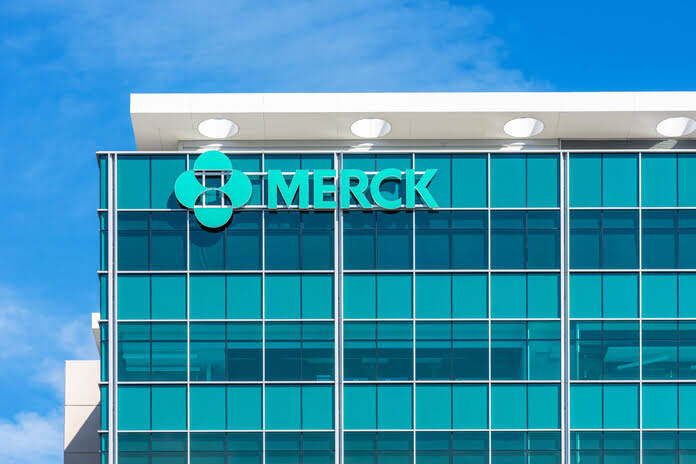Merck (NYSE:MRK) has received approval from the U.S. Food and Drug Administration (FDA) for the expansion of its blockbuster drug Keytruda in the treatment of gastric cancer. Keytruda, when combined with fluoropyrimidine- and platinum-containing chemotherapy, is now approved for the first-line treatment of adult patients with locally advanced unresectable or metastatic HER2-negative gastric or gastroesophageal junction (GEJ) adenocarcinoma.
The approval is based on data from the phase III KEYNOTE-859 study, demonstrating a statistically significant improvement in overall survival for patients treated with the Keytruda combination compared to those who received chemotherapy alone. The European Medicines Agency (EMA) has also issued a positive opinion for a similar indication based on data from the same study, with a final decision expected before year-end.
This marks the seventh indication for Keytruda in gastrointestinal cancers and the 38th overall indication for the drug in the country. The approval extends the availability of Keytruda-based combination therapy to patients with both HER2-negative and HER2-positive advanced gastric or GEJ adenocarcinoma.
Despite this positive development, Merck’s shares have faced challenges, losing 8.1% year-to-date against the industry’s 2.3% growth.
Keytruda, an anti-PD-1 therapy, is a cornerstone of Merck’s oncology portfolio, contributing approximately 46% of the company’s total revenues in the first nine months of 2023. The drug is currently authorized to treat eight indications in earlier-stage cancers in the United States and is continually expanding into new indications and markets globally.
In the nine months ending September 2023, Keytruda generated $18.4 billion in sales for Merck, reflecting a 19% year-over-year increase. The drug’s sales growth is driven by robust momentum in metastatic indications and rapid uptake across recent earlier-stage launches.
Merck’s ongoing efforts to evaluate Keytruda across more than 30 types of cancer indications in over 1600 studies, including combination studies, indicate a positive outlook. If approved for new cancer indications, label expansions can further contribute to Keytruda’s sales growth.
Despite the recent stock challenges, analysts express optimism, with 37 out of 41 analysts covering Merck providing a “Strong Buy” recommendation. The highest price target for Merck’s stock is $230, suggesting nearly 60% potential upside, while the average price target implies about 20% growth potential from current levels.
Merck is actively focusing on improving profitability through initiatives such as enhancing operating efficiency, reducing costs, and strategic network reorganization. The company’s commitment to defending and expanding its leadership position in both the cloud and retail spaces remains steadfast.
In summary, Merck’s Keytruda continues to demonstrate its significance in the oncology landscape, with FDA approval for expanded use in gastric cancer marking another milestone in the drug’s successful journey.
Featured Image: Megapixl



